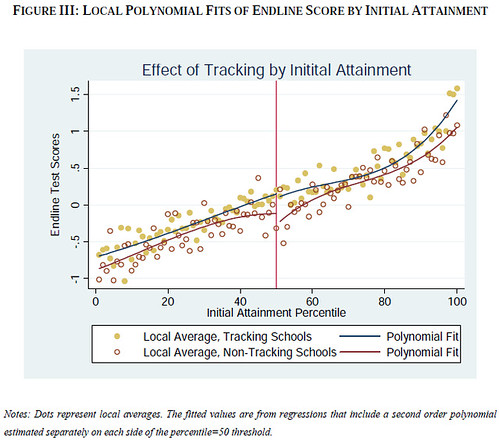Esther Duflo, Pascaline Dupas, and Michael Kremer wrote for American Economic Review, 101(5): 1739–74, DOI:10.1257/aer.101.5.1739,
Peer Effects, Teacher Incentives, and the Impact of Tracking: Evidence from a Randomized Evaluation in Kenya
To the extent that students benefit from high-achieving peers, tracking will help strong students and hurt weak ones. However, all students may benefit if tracking allows teachers to better tailor their instruction level. Lower-achieving pupils are particularly likely to benefit from tracking when teachers have incentives to teach to the top of the distribution. We propose a simple model nesting these effects and test its implications in a randomized tracking experiment conducted with 121 primary schools in Kenya. While the direct effect of high-achieving peers is positive, tracking benefited lower-achieving pupils indirectly by allowing teachers to teach to their level. (JEL I21, J45, O15)The first sentence is the standard “diversity” argument that CUEE keeps making. The authors state it so as to poing out that their study finds that it’s far from the whole story.
I find this part especially interesting: Continue reading
